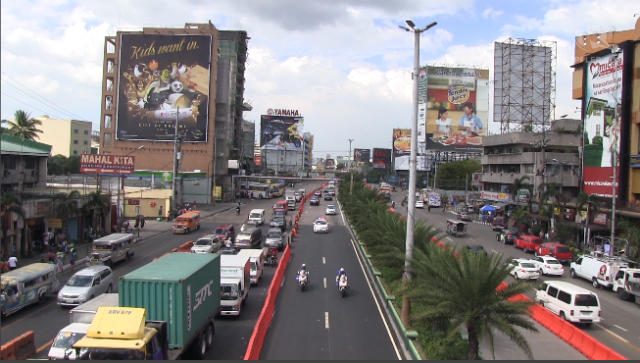SUMMARY
This is AI generated summarization, which may have errors. For context, always refer to the full article.

MANILA, Philippines – All eyes are on the Philippines from November 18 to 19, as it plays host to the Asia-Pacific Economic Cooperation (APEC) Economic Leaders’ Meeting.
Even before economic leaders fly in, security in Manila is tightened, special lanes along EDSA opened up, roads partially or completely closed, plus work and classes suspended.
Government and business leaders see it as an opportunity to expose Asia’s so-called “rising tiger” to the rest of the world, but for many Metro Manila residents, it’s hell on paved concrete. Commuters and motorists spend hours on the road, as the cracks of the Philippine megacity’s infrastructure become all the more apparent.
Bea Cupin files this report. – Rappler.com
They called it “Walking Deadsa.” Others lamented about how they were “APECtado.”
Online and offline, Metro Manila residents turn to humor and wit this week as preparations for the arrival of several world leaders aggravate what is a long-running problem in the Philippine mega city: heavy traffic and infrastructure – or the lack thereof.
But the scenes from Monday, November 16, or the start of the Asia-Pacific Economic Cooperation’s CEO forum aren’t anything to laugh at.
Road closures force commuters, particular those from provinces south of Metro Manila, to walk for several kilometers under the heat of the blistering tropical sun.
Motorists are stuck in traffic for hours, while APEC delegates, the country’s top government officials, and visiting dignitaries get to use the special “APEC lane” where congestion is non-existent.
Filipinos say it’s unfair for the government to make special considerations for its high-profile visitors while treating its own people as – quote – second-class citizens.
President Benigno Aquino III himself concedes more could have been done to improve the country’s infrastructure.
BENIGNO AQUINO III, PRESIDENT, PHILIPPINES: Perhaps we could have been even more daring and more involved in to take on the loans that could have funded so many things. And we have reached that capacity in terms of the construction, etcetera, early on, perhaps we could have accelerated the pace of the infrastructure support.
The traffic situation in Metro Manila – particularly in cities that will host summits, meetings, and world leaders – is expected to be even worse beginning Tuesday.
SONNY COLOMA, PRESIDENTIAL SPOKESPERSON: Let’s just say we did our best. We believe that this is the best arrangement that we could organize for this meeting to fulfill our international responsibility and we are calling our citizens in the spirit of bayanihan to share in the burden of sacrifice and to understand this from the perspective of long-term national interest.
US President Barack Obama and Chinese President Xi Jinping are among the 21 APEC leaders or representatives joining the economic leaders’ summit at the PICC.
Add a comment
How does this make you feel?
There are no comments yet. Add your comment to start the conversation.